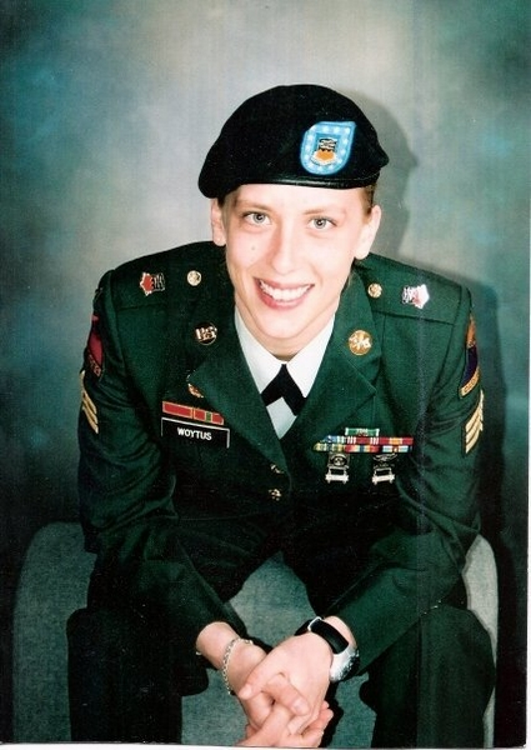
Angie Peacock joined the Army right out of high school, never dreaming that decision would take her to hell and back.
Today, she travels the country in her RV alongside her service support animal, serving her fellow veterans as a holistic health coach.
“I just want my story to show you can go through hell, come out of it and build a really good life,” she said.
Peacock’s grandparents served in World War II, so joining the military was always in the back of her mind.
“I just wanted to continue that tradition within my family,” she said.
Peacock was 18 when she joined the Army. She served 6 years and 9 months, with one tour in Iraq.
“I had military sexual assault, so I was raped by a fellow soldier overseas,” she said. “About two years later, I deployed to Iraq.”
Even with the trauma she experienced, Peacock said she did her job well.
“I really put my all-in-all into my military service,” she said.
Peacock deployed to Iraq from Germany in 2003.
“We were the convoy you saw on CNN going to Baghdad,” she said.
Within a month of reaching Baghdad, Peacock said she went from 140 pounds of muscle to 100 pounds of skin and bones.
“I was extremely sick,” she said. “I had nosebleeds, gastrointestinal problems, fevers. I think it was the anti-malarial drug they gave us.”
Peacock said she remained in that state for six months.

“There was dual trauma going on,” she said. “I’m getting shot at every day, my soldiers are getting injured and I could die from this mysterious, non-combat illness, whatever the heck it is.”
Peacock was eventually medically evacuated from Iraq.
“The very next day my convoy was hit,” she said.
Peacock was in the same hospital as her injured soldiers.
“That’s when the survivor’s guilt kicked in,” she said. “It was in that moment that I felt I couldn’t handle any more trauma.”
While in the hospital, Peacock sought mental health help.
“Back then, if you showed any signs of needing help, you were medically retired,” she said. “So I was medically retired with full benefits with post-traumatic stress.”
Prior to being medically retired, Peacock said she was set to be promoted to E-6.
“I was on track to be a recruiter or drill sergeant,” she said. “I was at the top of my game. I went from like top super soldier to nothing because of the illness and the trauma I experienced.”
Peacock said she had an “intensely difficult” transition when she left the service. In addition to being what she described as “overmedicated” by both civilian and Department of Veterans Affairs medical providers, Peacock experienced homelessness and attempted suicide several times.
“Everything bad that could go wrong went wrong,” she said. “I was traumatized and just wanted to feel better. I was seeking that in whatever way I could find it. It was just in all the wrong places.”
Peacock spent a few years in treatment programs when someone told her she was eligible for help from the Wounded Warrior Project.
“I needed friends that said, you’re going to have a rough time, but you’re going to get through this,” she said. “I needed nutrition, I needed sleep, I needed spirituality, I needed rest. It’s not just a pill will fix your trauma. That’s a lie.”
With the help of WWP and the Institute for Veterans and Military Families, Peacock became a holistic health coach and vetpreneur.
"Wounded Warrior Project saved my life, and IVMF gave me the entrepreneurial boost I needed to become self-sufficient,” she said. “Life off disability exists, and people out there want to help. We have to go out and find it."
Reach Julia LeDoux at Julia@connectingvets.com.


